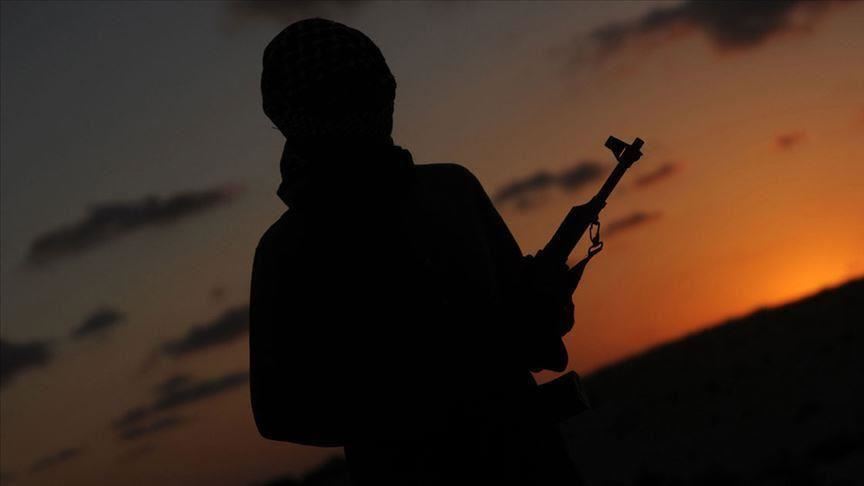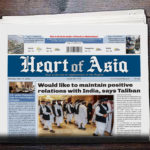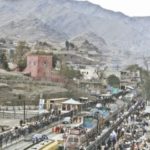A diplomatic row is brewing between Kabul and Islamabad over the recently captured head of the Daesh terrorist group in Afghanistan, who hails from Pakistan.
Afghanistan on April 10 rejected Pakistan’s demand to hand over Abdullah Orakzai, who was nabbed by Afghan security forces earlier this month in the southern Taliban heartland of Kandahar.
The Foreign Ministry in Kabul said Friday that Orakzai, also known as Aslam Farooqi, is wanted for a number of gruesome terrorist attacks and would be tried in line with Afghan laws.
“Afghanistan does not discriminate between terrorists. It takes equal legal action against all and is committed to all anti-terrorism commitments,” it said.
As there are no agreements between Pakistan and Afghanistan on the extradition of suspects and convicts, Farooqi will be dealt with according to the Afghan law, the ministry noted.
“The two countries can make joint efforts for the exchange of information under the Afghanistan-Pakistan Action Plan for Peace and Solidarity, which will help in fighting terrorism,” it added.
The National Directorate of Security (NDS), Afghanistan’s intelligence agency, announced the arrest of Farooqi on April 6 in Kabul.
Kabir Haqmal, an adviser to the National Security Council, claimed while speaking to Anadolu Agency that the arrested Daesh leader hailed from Orakzai Agency in Pakistan and was working under the direct command of Pakistan’s Inter-Service Intelligence agency.
“Pakistan fears he will reveal all their secrets about ties to militant groups,” said Haqmal.
Farooqi arrest came days after the group claimed responsibility for a deadly terrorist attack on a Sikh place of worship in Kabul which killed 25 people.
But Pakistan’s security analyst viewed the Afghan government refusal as part of their own fear.
“Former Afghan President Hamid Karzai and some members of the Afghan parliament had publicly claimed that Daesh enjoys full hidden support in Afghanistan and even aid provided to them through helicopters,” Brigadier retired Said Nazir, an Islamabad-based security analyst said.
Nazir was referring to Karzai’s interview with Al Jazeera in 2017, when he accused the Washington of working with Daesh.
Daesh is behind a dozen attacks in Pakistan and the group operating from Afghanistan, he added
Nazir suggested the Afghan government to work with its neighbors as accusation and blame games were not benefiting anyone.
On April 9, Islamabad summoned the Afghan ambassador Atif Mashal to the Foreign Ministry and said as Farooqi was involved in anti-Pakistan activities in Afghanistan, he should be handed over to Pakistan for further investigations.
“It was stressed that Pakistan had been expressing its concerns over the activities of this group, which were clearly detrimental to Pakistan. Pakistan’s position in this regard has been regularly shared with the Afghan government and others concerned,” Aisha Farooqui, the spokesperson of Pakistan Foreign Ministry, told reporters on a weekly press briefing.
She added they have emphasized that the two sides should coordinate actions against the menace of terrorism, including through use of established mechanisms.
History of sectarian violence
Farooqi hails from Orakzai Agency’s troubled town of Kalaya, the epicenter of a bloody sectarian rift between Shia and Sunni Muslims.
Saboor Khattak, a senior journalist covering the tribal areas between Afghanistan and Pakistan, told Anadolu Agency that Farooqi has a long history of affiliation with hardline militant groups.
“Before joining Daesh and ultimately becoming the head of the so-called Islamic State-Khorasan chapter last year, Farooqi was associated with Sipah-e-Sahaba and Tehreek Taliban Pakistan,” he said — both of which are banned militant groups in Pakistan.
Sipah-e-Sahaba was particularly notorious for its anti-Shia agenda in Pakistan, while Daesh/ISIS following the same agenda in Afghanistan as the terrorist group claimed multiple attacks against the Shia Hazaras in the country.
Hailing from the influential Mamozay clan of the Orakzai tribe, 55-year-old Farooqi has four children and runs a religious school in the area, Khattak said.
Farooqi was wanted for being involved in several terrorist attacks on security forces and civilians in Pakistan.
Daesh ‘obliterated’ in Afghanistan
In November last year, Afghan President Ashraf Ghani declared that Daesh had been “obliterated” in Afghanistan, with hundreds of its fighters surrendering to security forces in the east of the country bordering Pakistan.
According to Afghan officials, a large number of fighters for Daesh, including its founder in Afghanistan Hafiz Saheed, hailed from Orakzai Agency.
Relations between the two neighbors have long been strained as both sides accuse each other of harboring terrorist groups.













